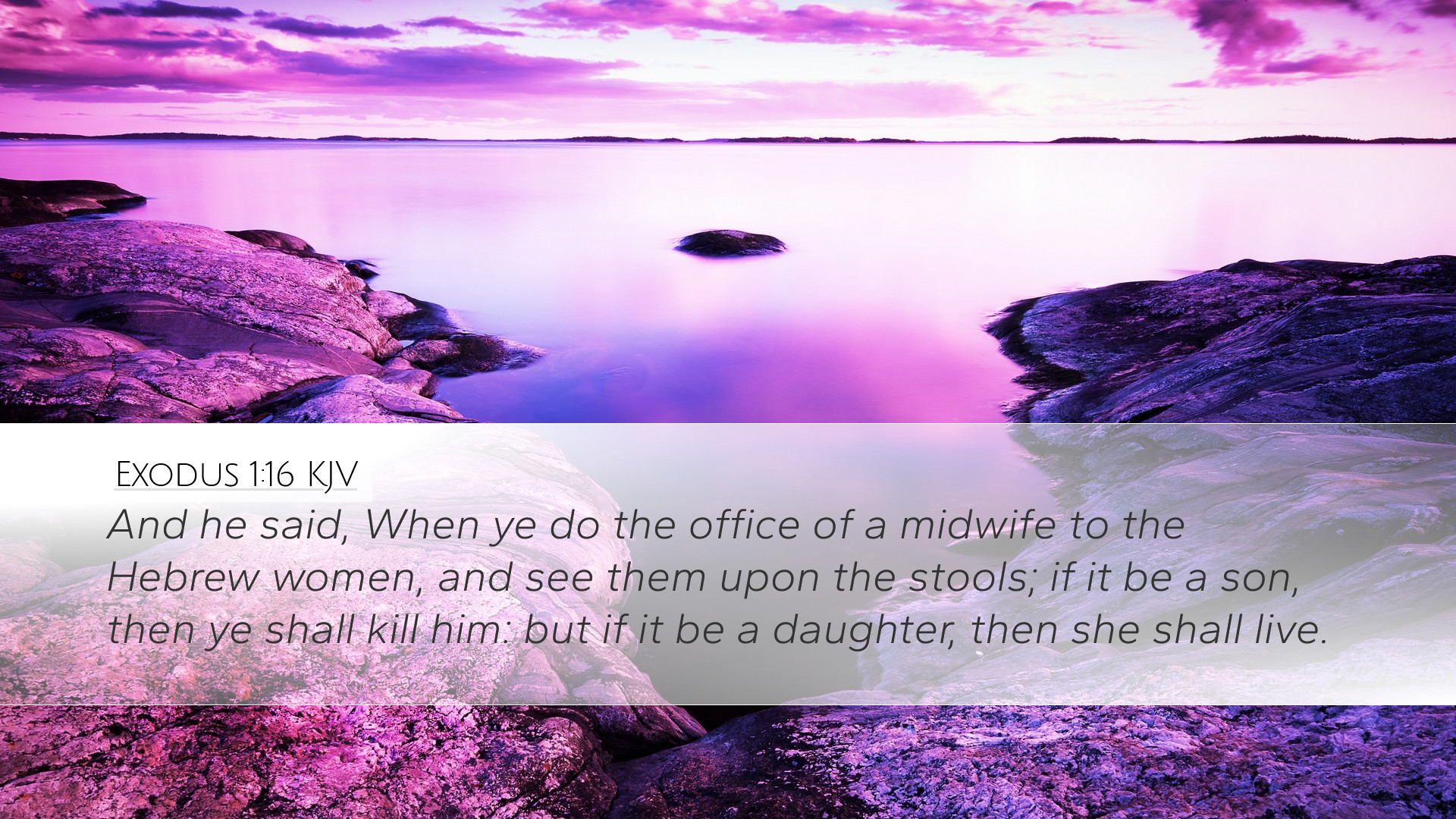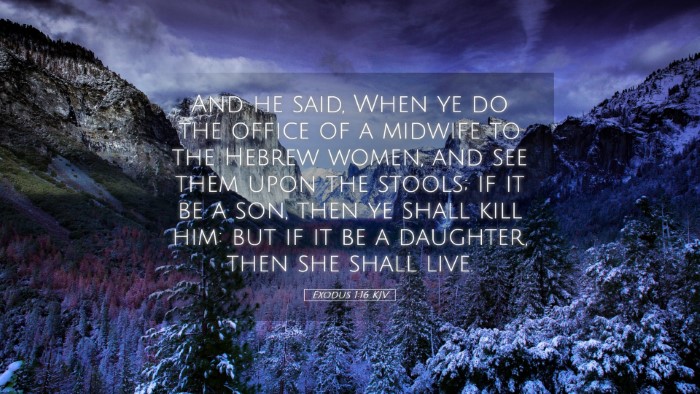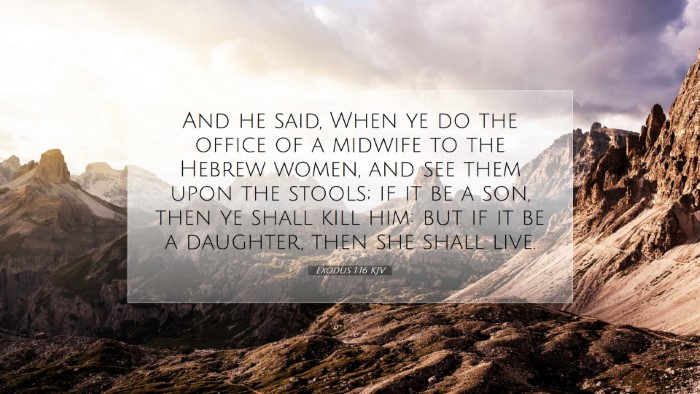Exodus 1:16 - Commentary and Insights
Verse Context: Exodus 1:16 states, "And he said, When you do the office of a midwife to the Hebrew women, and see them upon the stools; if it be a son, then you shall kill him: but if it be a daughter, then she shall live." This verse occurs during a time of oppression for the Israelites in Egypt, where the Pharaoh commanded the midwives to kill male infants born to Hebrew women.
Historical Context
The Book of Exodus begins with the Israelites in a state of bondage. After Joseph's death, a new Pharaoh arose who did not know Joseph and viewed the Israelites as a threat due to their growing numbers. The context of this command is a significant moment of tension, where Pharaoh seeks to control and diminish the Hebrew population through inhumane measures.
Commentary Insights
1. Matthew Henry’s Commentary
Matthew Henry emphasizes the brutality of Pharaoh's command and the underlying fear that motivated it. He regards this moment as a dark chapter in Israel's history, highlighting the power of the state to impose cruel laws upon the vulnerable. Henry notes that this command was not merely an act of violence but an expression of Pharaoh's anxiety about losing control over the Hebrew population. He illustrates the contrast between God's providence and human tyranny, suggesting that Pharaoh’s attempted extermination of the Hebrew boys was ultimately futile in the face of divine plans.
2. Albert Barnes’ Commentary
Albert Barnes provides a more theological interpretation, viewing Pharaoh's command as indicative of the larger spiritual struggle between the people of God and their oppressors. He observes that the command given to the midwives sets the stage for a miraculous deliverance that is forthcoming. Barnes also highlights the midwives' courage in defying Pharaoh's order, indicating that their actions were not only a rebellion against authority but also an act of civil disobedience rooted in their fear of God, which they viewed as sovereign over life and death.
3. Adam Clarke’s Commentary
Adam Clarke analyzes the significance of the midwives' role. He discusses their unique position and the moral obligation to protect life. Clarke notes that the command of Pharaoh represents a conflict between divine law and human law – a theme prevalent throughout biblical history. He suggests that the midwives' successful defiance illustrates a profound ethical dilemma that is still relevant in contemporary discussions about authority and morality. Clarke posits that life has inherent value, and the act of preserving it is a key theme in the narrative.
Theological Themes
- Authority and Civil Disobedience: The actions of the midwives demonstrate the importance of standing against unjust authority. The response of the midwives can serve as an example for believers today about the necessity of discernment when confronting sinful commands.
- Divine Providence: The overarching message of God's sovereignty during oppression is clear. This passage indicates that God’s hand remains active even amid suffering and persecution, foreshadowing the eventual liberation of the Israelites.
- Value of Life: The value placed on human life is emphasized through the contrast of Pharaoh's decree and the midwives' actions that affirm life in the face of death.
Practical Applications for Today
The narrative in Exodus 1:16 offers several practical lessons for pastors, students, theologians, and scholars:
- Ethical Leadership: Leaders are called to reflect on the nature of laws they enact. The ethical implications of their decisions should weigh heavily, particularly when it comes to matters of life and death.
- Courage in Conscience: Followers of God are reminded to act as the midwives did—valuing their conscience in relation to God’s commands above human authority.
- Community Support: The story encourages the creation of supportive communities that uplift and protect vulnerable populations in contemporary society, echoing the midwives’ unity in their defiance of oppression.
Conclusion
Exodus 1:16 encapsulates a critical moment in biblical history where tyranny meets resilience, framing a narrative rich with moral, ethical, and theological dimensions. As we study this passage, we are reminded of the enduring struggle for justice and the importance of standing firm in faith against oppression. The insights provided by Matthew Henry, Albert Barnes, and Adam Clarke illuminate our understanding, making clear the lasting relevance of these ancient words for our modern world.


